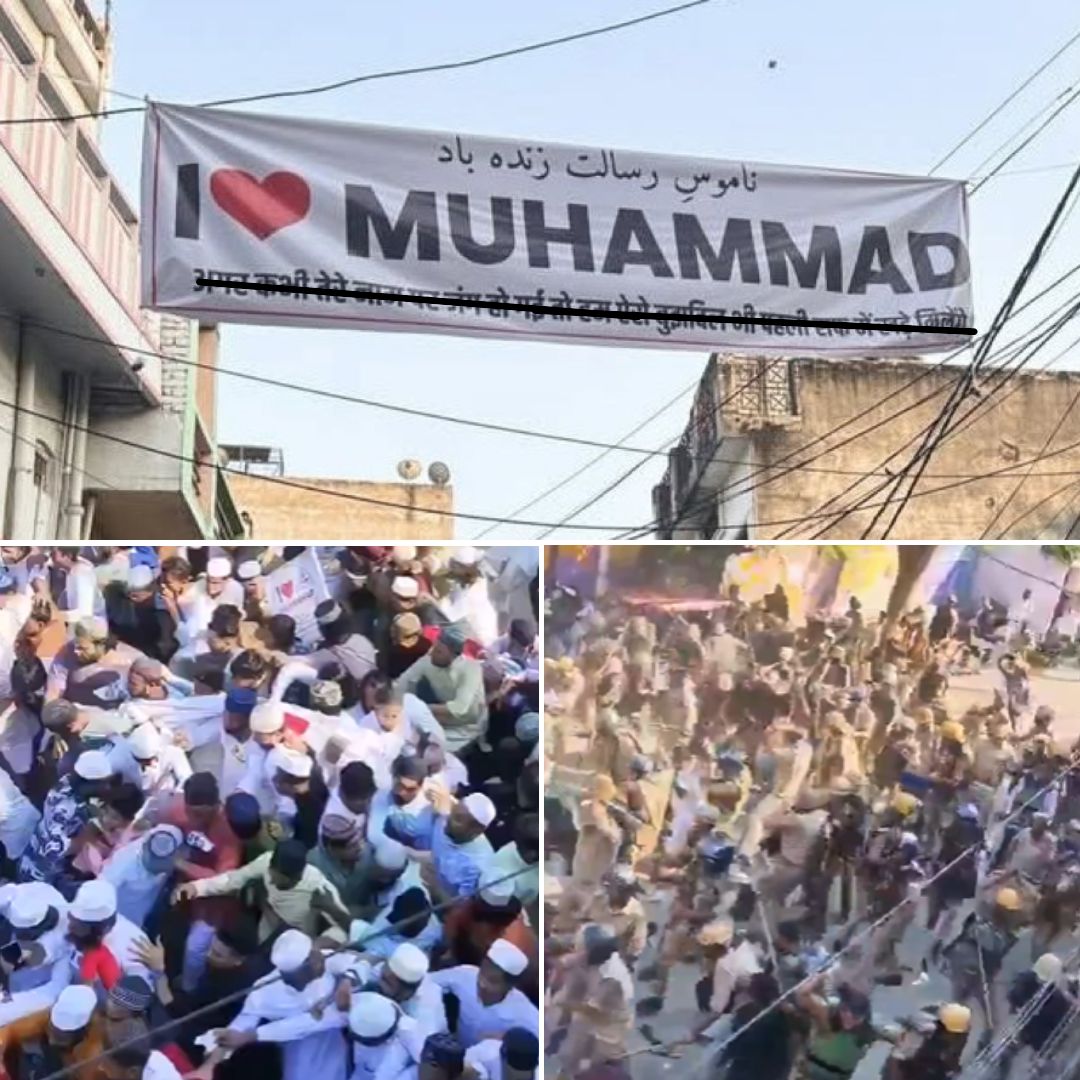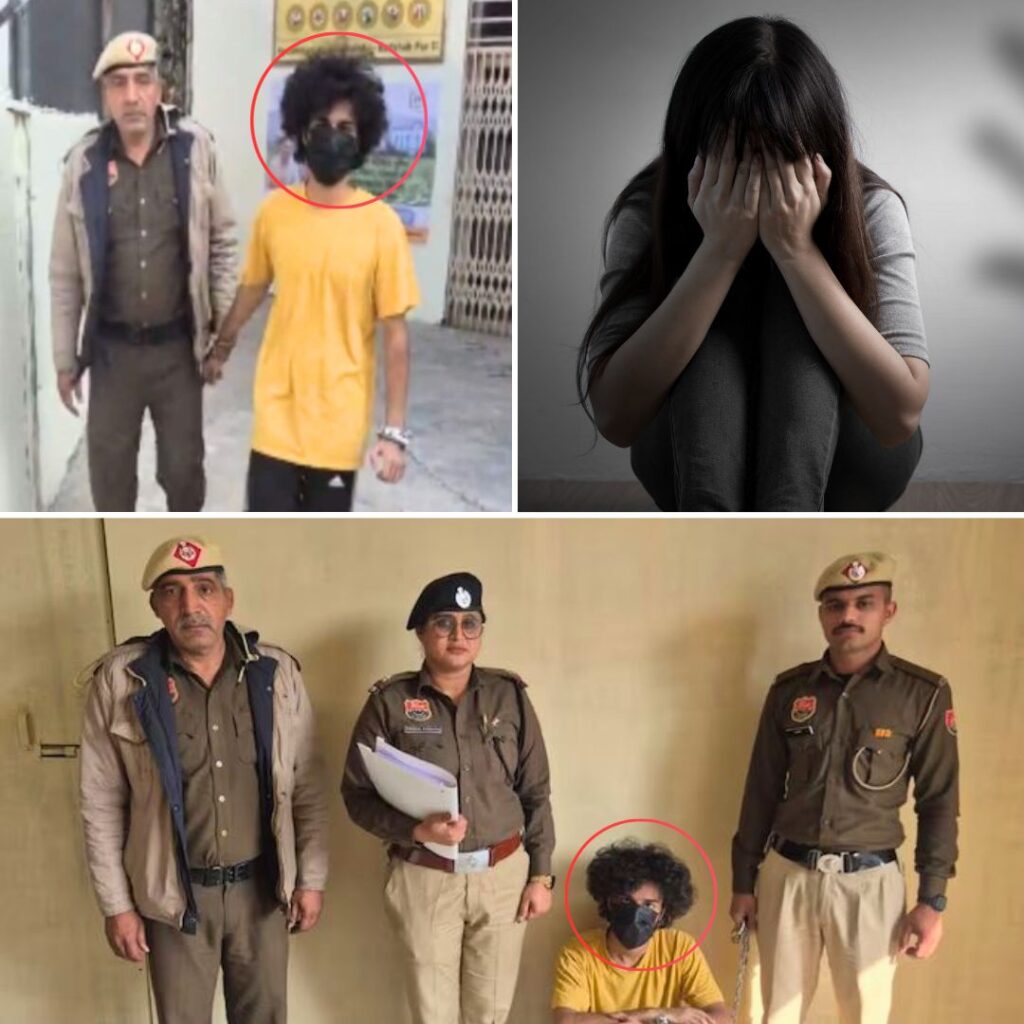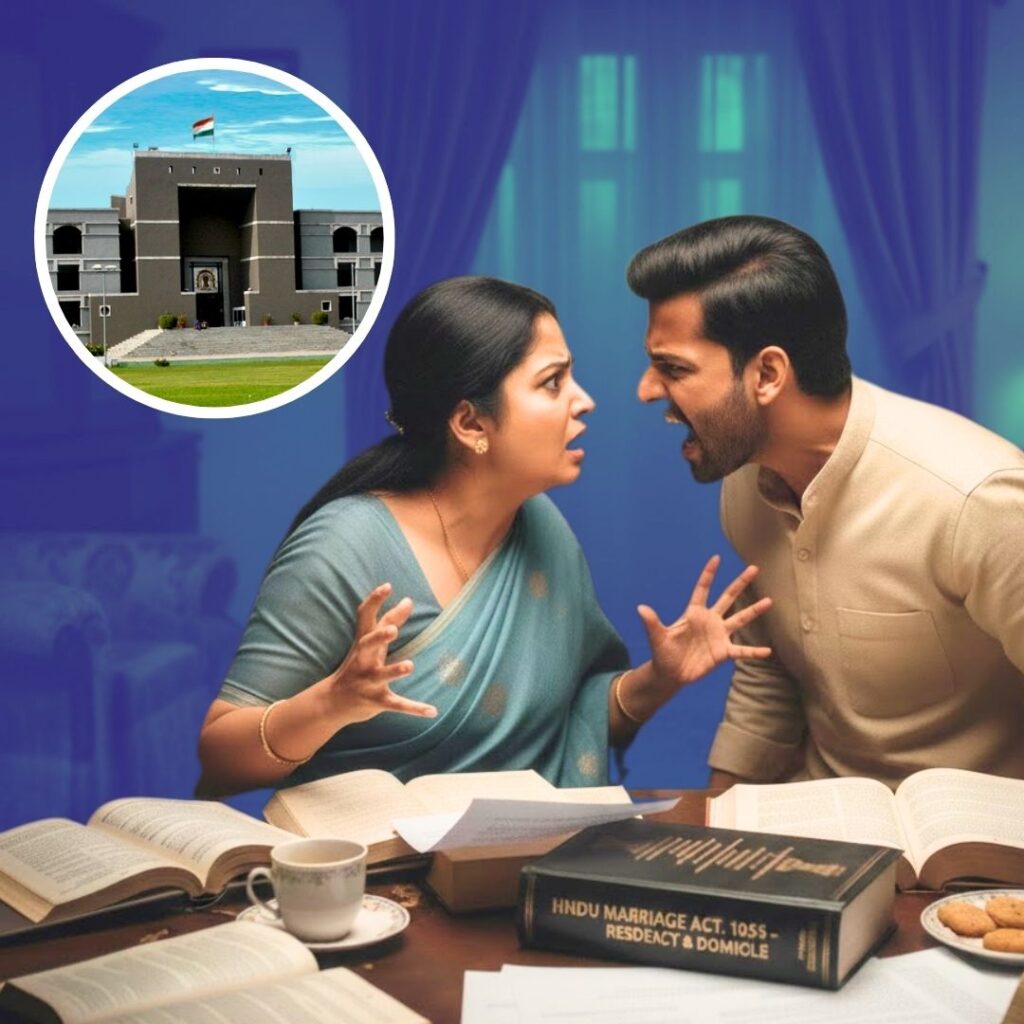In Bareilly, Uttar Pradesh, police clashed with protesters carrying “I Love Muhammad” banners after Friday prayers, amidst chants of “Allahu Akbar.” The situation escalated with stone pelting, prompting police to resort to lathi charge to restore order.
This is part of ongoing unrest in several UP cities related to the ‘I Love Muhammad’ controversy, which began earlier this year. Authorities have banned protests without permission under Section 163 of the BNS Act and deployed heavy security, including flag marches and drone surveillance, to prevent further violence.
Bareilly Protest Turns Violent After Friday Prayers
A large crowd gathered near Islamia Ground following cleric Maulana Tauqeer Raza’s call to submit a memorandum against what they perceive as derogatory acts related to Muhammad’s name. Despite police warnings and heightened security, including flag marches led by district officials, the protest turned violent with slogans raised and stones thrown at the police.
Police had to employ baton charges to disperse the crowd and maintain law and order. Officials warned that those inciting violence will be arrested and urged the public to stay peaceful.
Origins and Spread of the ‘I Love Muhammad’ Controversy
The controversy originated during a Barawafat procession in Kanpur where a banner reading “I Love Muhammad” was displayed, drawing objections from right-wing groups who felt it disrupted traditional celebrations. The issue quickly spread to cities like Lucknow, Kaushambi, Unnao, Kashipur, Hyderabad, and beyond, leading to protests, arrests, and FIRs for promoting enmity. The movement has also sparked a digital counter-movement by Hindu groups celebrating their faith with slogans like #ILoveRam and #ILoveMahadev, highlighting the ongoing communal tensions.
The Logical Indian’s Perspective
This episode highlights the need for balanced approaches that respect religious sentiments without igniting communal tension or violence. The Logical Indian urges all communities and authorities to foster peaceful coexistence through dialogue, understanding, and respect. Freedom of religious expression must be exercised in ways that promote harmony, not discord.












